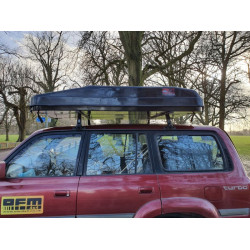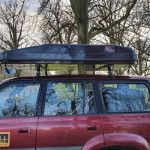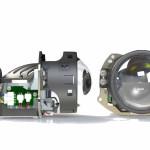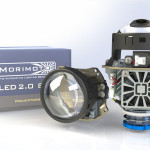
Hard Shell Rooftop Tent vs. Soft Shell RoofTop Tent: The DT Adventure Extreme Hard Shell Rooftop Tent, as the name suggests, has a hard shell construction. This means that when closed, it features a rigid shell that provides better protection against the elements and offers improved aerodynamics during travel. Soft shell tents, on the other hand, are made of fabric and are usually more affordable and easier to set up.
Size and Capacity: Rooftop tents come in various sizes and can accommodate different numbers of people. When comparing different brands, consider the dimensions of the tent when open and closed, as well as the sleeping capacity it offers. Ensure that the size and capacity meet your specific needs.
Materials and Construction: Look for tents made from durable and weather-resistant materials. High-quality fabrics, sturdy frames, and reinforced stitching are essential for long-lasting performance. Check for features such as waterproofing, UV resistance, and ventilation options to ensure comfort in various weather conditions.
Ease of Setup: Different brands may offer variations in the setup process. Some tents have a clamshell design that allows for a quick and easy setup, while others may require more time and effort. Consider how important ease of setup is for you and compare the mechanisms provided by different brands.
Additional Features: Compare the additional features offered by different brands. These may include features like insulation, built-in mattresses, storage pockets, LED lighting, windows, annex rooms, and awnings. Consider which features are important to you and compare them across different brands.
When researching and comparing rooftop tents, it's recommended to read reviews, check user feedback, and compare specifications and prices from multiple sources. This will help you make an informed decision based on your specific needs and preferences.














































































-1000x1000w-150x150.jpg)
-1000x1000w-150x150.jpg)




Leave a comment